If the name B. Altman sounds familiar to you, it’s probably due to the Amazon series The Marvelous Mrs. Maisel. The star of the show, Midge, works in multiple roles there from makeup counter girl, to coat room attendant, to phone operator (though never as elevator operator, the role she originally applied for). Today, I want to share more about the life of B. Altman and his incredible contribution to my favorite New York City institution, the Met.
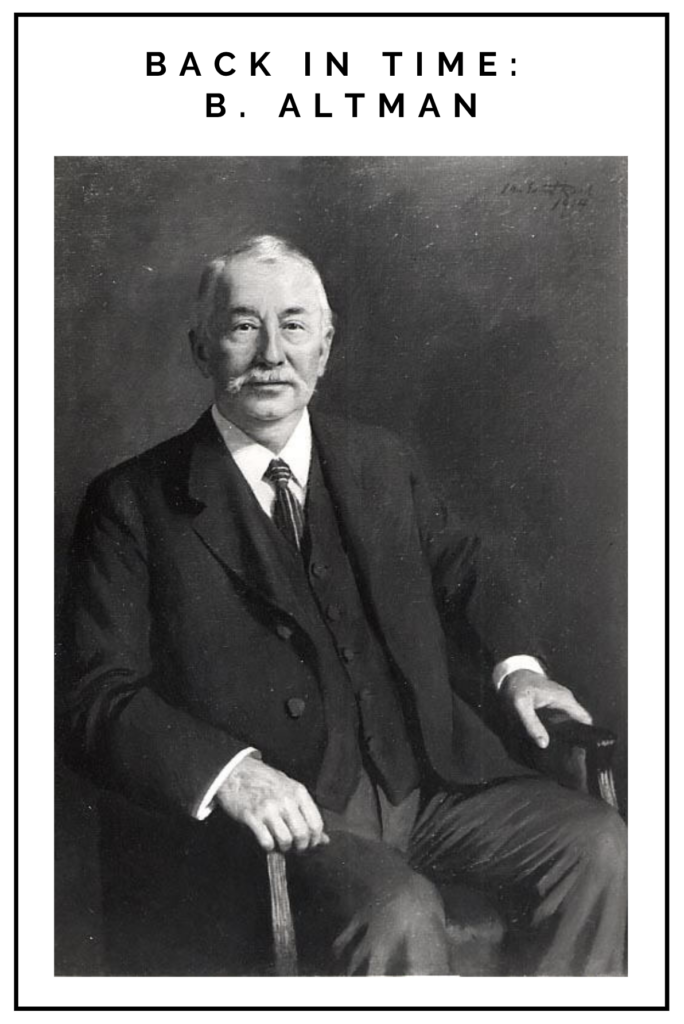
Background
Benjamin Altman, or B. Altman, was born to immigrant Jews in 1840 and start out his career assisting his father at the family’s dry goods store. He eventually took ownership and grew the company until it morphed into a department store. They moved locations and eventually its flagships ended up on Fifth Avenue and on 34th Street in 1906, with branches throughout the city and tristate area. For my New Jersey friends, B. Altman opened in Short Hills and while the store is no longer there, it gave way to the Short Hills mall.

The Met
During this time, Altman was considered a “merchant prince” and by the time he died in 1913 he was worth over $1 billion in today’s dollars. I realized that there was more to Altman’s fame than his genius for merchandising (B. Altman was one of the first department stores to display clothing for different ages in specific sections) when I was reading about the history of the Met and started a chapter called “Princely Aspirations” (seeing a theme here?). He also lead the move to Fifth Avenue as a shopping destination, dubbed “Ladies Mile.”
Upon Altman’s death, his personal art collection was bequest to the Met. He has masterpieces from Rembrandt’s to Chinese snuff boxes (!! if you know, you know) and his bequest put the Met “at the forefront of the world’s treasure houses, with the Louvre and Madrid.” Altman donated some of my favorite pieces and I love seeking them out around the museum.
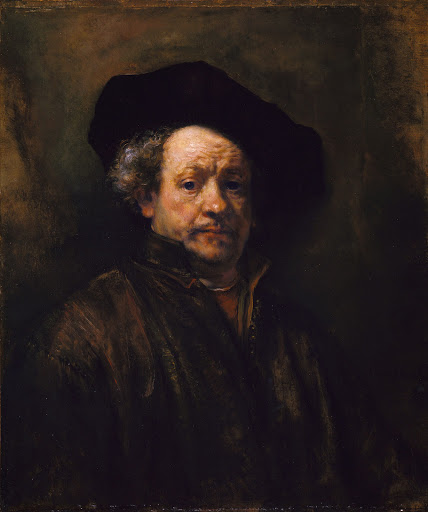
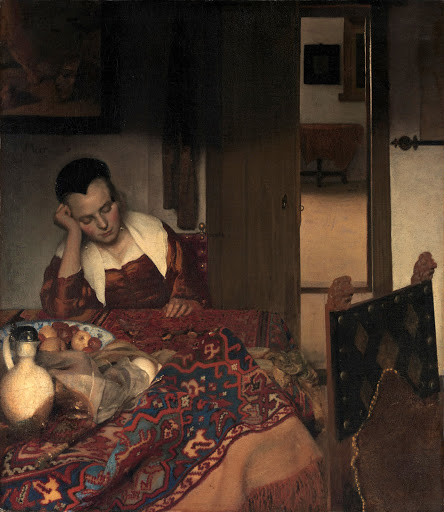
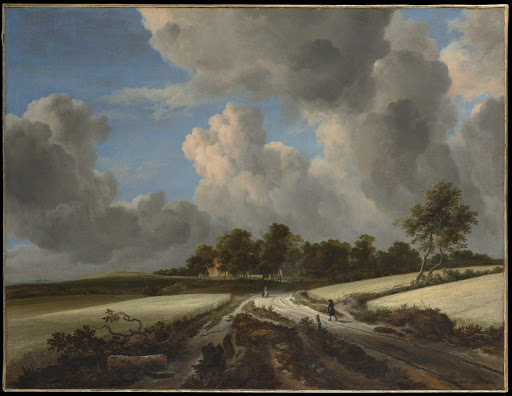
Not much is known about Altman’s personal life. He did not have children of his own, but was active in the lives of his nieces and nephews, and worked closely with his older brother. His younger sister’s husband was also a business partner, but was murdered by the Ku Klux Klan for supporting African American rights. His older brother died in his 30s from cholera, so Altman was left as a key provider for his family.
He did not join any social clubs and more often than not elected to spend free time in his home with his art collection. His two great passions in life were business and art, and he proved himself to be an exceptional contributor in both arenas.
Business Innovation
Aside from identifying the best locations for his stores and organizing merchandise in helpful ways, Altman was able to attract customers by keeping prices low and service exceptional. He kept as many as 500 horses next to his store so that he could provide home delivery for customers – wonder where Bezos got the idea for Amazon Prime delivery…
Altman took the approach of creating an experience that was not a necessity, but an entertainment. By having modern conveniences (like ventilation and carpeting), his store became a destination and not just a place to quickly shop. He also pioneered using windows as displays to draw shoppers in and established holiday windows as the norm on Fifth Avenue.
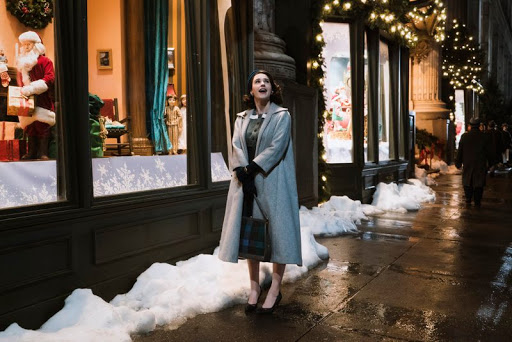
Altman was one of the first to leverage catalogues to allow customers who didn’t live in the area to still shop with him, and his artistic sensibility informed the design and merchandise in store and catalogue.
B. Altman’s influence in the art and business worlds was substantial, despite his private nature. It was exciting to learn more about the man who helped to put the Met on the map and who gave our friend Midge a job 😉
-Alyssa J




Leave a Reply